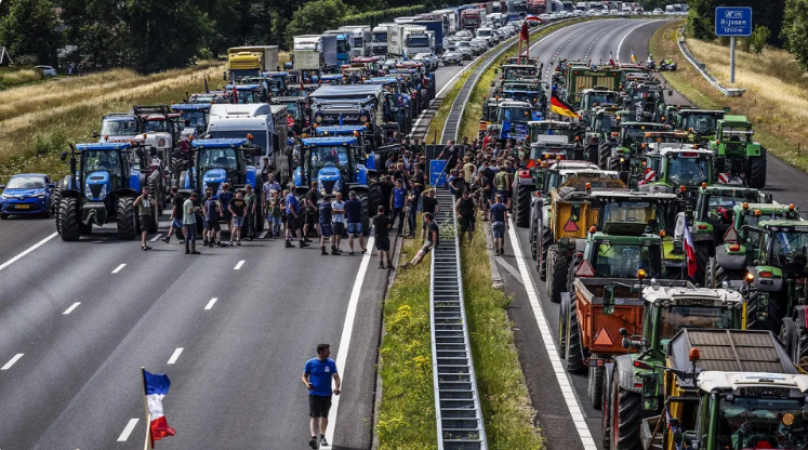
Netherlands: In addition to the ongoing farmer protests in Europe which were sparked by the Netherlands government's proposals to reduce emissions for the global energy crisis. which is a direct result of the five-month-long conflict in Ukraine. Is a bad effect on the global economy.
Faced with escalating protests, the EU will need to find a balance between its food security and the environment, neglecting which not only the effects of this unrest will affect the global food chain but also further drive up prices in the affected nations. Any disruption to the global food supply chain will cause smaller economies to collapse, and the Sri Lankan crisis will be repeated on other continents. Oil prices are at an all-time high as a result of sanctions against Russia, and West Asian oil producers are making windfall profits by reducing production.
A massive farmers' protest that was sparked by proposals to limit emissions of known pollutants from intensive livestock and crop production systems is picking up steam in the Netherlands while the Ukraine conflict has turned into a battleground for Russia and the Western countries.
This protests is forcing the Dutch government to reconsider its $22 billion plan to reduce nitrogen and ammonia emissions by 50-70% by 2030. As other nations show their support for the protest the European Union will be forced to do the same. The difficult decision is pending to chose between food safety and the environment.
A government program in the Netherlands targets the agricultural sector, which accounts for 45% of all nitrogen emissions. The livestock's emissions of nitrous oxide and ammonia must be significantly reduced by the farmer. As a result, many farms will be forced to reduce their operations, and some will have to close permanently. Despite the fact that the government has announced significant investments in agricultural housing and technology, if sufficient volunteers cannot be found for the technology shift, the government will also have the option of compelling farmers to sell their land.
An estimate indicates that the Dutch government's plan may render 30% of the farms inoperative by 2030. The Dutch farmers, whose livelihoods have historically been supported by the government, are increased by the attempt to comply with the EU's "Green Deal," which could drastically alter the lucrative agriculture industry in their nation.
thousands of prtesting farmers blocked the roads, ports, airports, and supermarket distribution centers With their tractors. They also set straw bales on fire in the streets and dumped manure near government buildings. As the protests get louder, the supermarkets are running out of food. Fishermen are now obstructing ports and several ships are honking their horns to protest. other groups are also going to take part in the protest. Although there is a "limit to what a government can do" to assist citizens in the face of rising inflation, Dutch Prime Minister Mark Rutte has for the time being defended the plan.
Special drive launched in UP to bring crop insurance to farmers